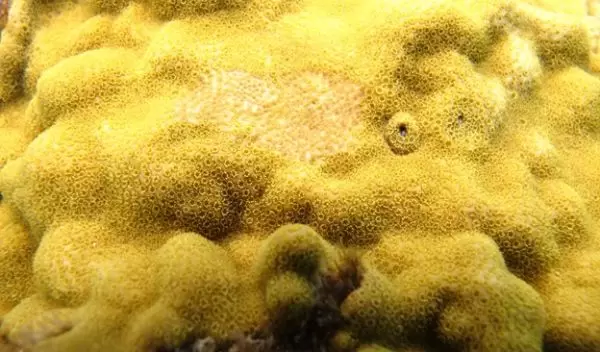
Scientists discover that coral 'winners' may now be losers
Examination of thousands of underwater photographs by San Fernando Valley high school students has led to the discovery that a species of Caribbean coral -- deemed by marine biologists as a winner in the struggle against natural disasters and warming ocean waters -- may now be losing the battle with climate change.
California State University, Northridge marine biologist Peter Edmunds enlisted local high school students to help study Porites astreoides -- commonly known as mustard hill coral -- on the south coast of St. John in the U.S. Virgin Islands.
"Over the years, as natural disasters and increasing climate change have taken their toll on the coral reefs off St. John, mustard hill coral seemed to be surviving, and maybe even thriving," Edmunds said. "People said it seemed to be a winner. It doesn't die -- it seems to grow quite well, and it's hanging in there. We decided to dig more deeply into the notion that a species of coral can be a winner under these difficult conditions, and we wanted to find out what is really going on with this coral."
Edmunds and his colleagues found that the growth over the course of three decades isn't quite what they thought. "Yes," he said, "mustard hill coral started off doing pretty darn well, totally consistent with being a winner, but then we found that about a decade ago it was showing signs of losing. Where there were once large colonies of mustard hill coral, we were finding more and more colonies that were small. The problem with small colonies is that they are more vulnerable and have a very high chance of dying."
The findings of the U.S. National Science Foundation-funded research are published in Ecosphere.
